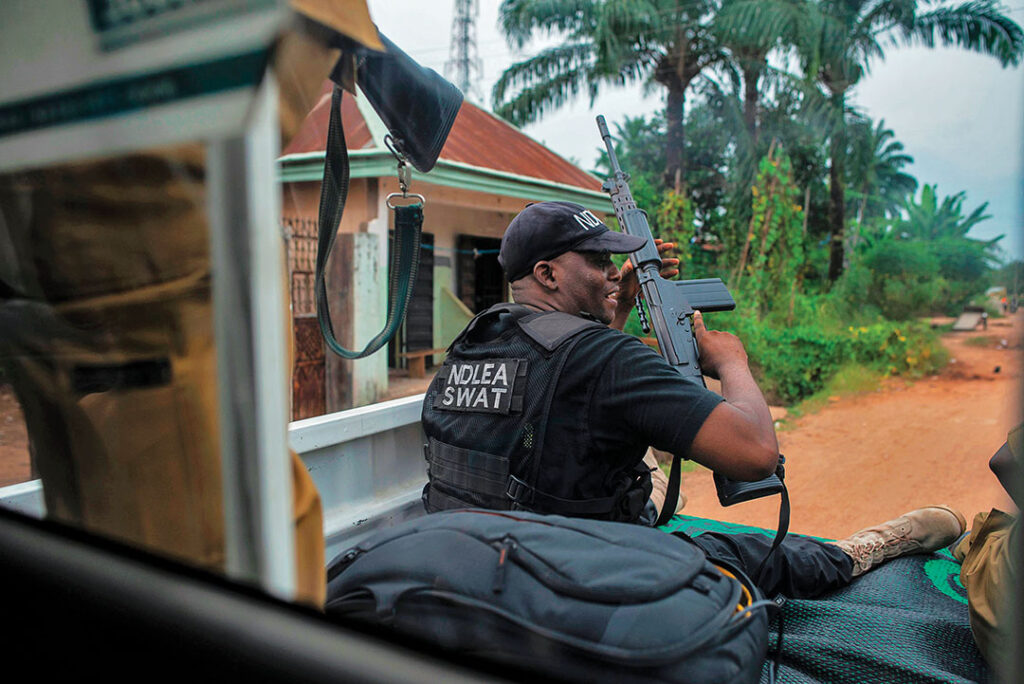Many African countries are battling the scourge of illicit trafficking. The illegal trade of drugs, weapons, minerals and wildlife fuels instability. It also deprives states of tax revenue and destroys irreplaceable natural resources.
The networks span the globe. South American drug traffickers use West Africa as a route to move narcotics to Europe and Asia. Chinese mafia organizations move timber, wildlife and minerals from Africa to Asian markets. The Russian Wagner Group has brokered deals with host governments to let it exploit natural resources in exchange for promises of security.
A report by the transnational crime research organization ENACT found that 61% of people in Africa live in a country with high levels of organized crime.
The problem is growing. In its 2021 report, ENACT studied 10 crimes, including human, arms and drug trafficking, and the theft of minerals, wildlife and flora. It found that all crimes except one –– heroin trafficking –– were increasing.
Trafficking is concentrated in countries with limited border security and endemic corruption. Central Africa, where war has left large areas effectively lawless, is the region with the highest growth in illicit trafficking.
“Conflict provides a breeding ground in which criminality thrives,” ENACT researchers wrote.
The cost is enormous. Illicit financial flows cost African countries $50 billion per year, according to a report by the African Union. The report’s authors conceded that the estimated total likely is low.
But the harm goes far beyond lost revenue. Criminal networks have caused rising rates of drug addiction and youth exploitation. In some cases, powerful traffickers have co-opted public officials in a process known as “state capture.”
No country can address these threats alone. Countries must share information and cooperate on enforcement. International policing organizations Interpol and Afripol coordinate efforts to help cast a wide net and snare traffickers. Programs to better secure seaports, airports and borders make it harder for criminals to move goods undetected. Anti-corruption measures ensure that public officials and security professionals serve the people instead of the traffickers.
Through effective cooperation, security professionals can help ensure the safe, legal movement of people and goods; protect natural resources; and reduce cross-border crime.

